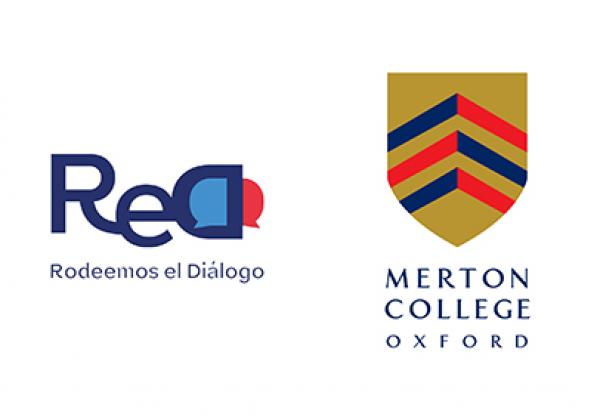Embrace Dialogue Academia Seminar 8: Urban Youth and School Life in Colombia’s (Post)conflict
Dialogues bridging academic research with policy implications for contemporary peacebuilding challenges in Colombia
This series of Embrace Dialogue Academia Seminars, co-hosted by Embrace Dialogue and Merton College brings together presentations of finished academic research with discussions to draw out the implications of this work for the current challenges of peacebuilding in Colombia.
In this seminar, Diego Nieto presented his PhD thesis on the disjuncture between young people’s experiences of war and their school curricula
Presenter: Dr Diego Nieto Sáchica, Researcher, Instituto de Estudios Interculturales, Pontificia Universidad Javeriana Cali & PhD in Comparative, International and Development Education, University of Toronto
Discussant: Dr Julia Paulson, Associate Professor in Education, Peace and Conflict, School of Education, University of Bristol
Convener: Dr Gwen Burnyeat, Junior Research Fellow in Anthropology at Merton College and member of Embrace Dialogue.
Diego Nieto’s PhD thesis, “Learning Conflict in the Midst of Violence. Urban youth & school life in Colombia’s (post)conflict transition”, explores the (dis)encounters between youths’ lived experiences and understandings of conflict and violence and the curricular intentions and practices in their schools. He studied youth in two schools in marginalized urban areas of Colombia that are differently affected by violence and the armed conflict. One school was located in Tumaco, a municipality directly affected by armed conflict violence. The other was in a traditional neighbourhood in Cali, affected by insecurity and urban criminality but located away from the direct effects of the armed conflict. He conducted participant observation, focus groups with youth from grades 8 to 10, interviews with teachers, and follow-up visits in each field site, in the wake of the 2016 peace agreement between the Colombian government and the FARC guerrilla.
His thesis shows that, despite young people’s different locations in relation to war, intimate expressions of direct violence—interpersonal, criminal, domestic, and drug-related—were prominent in students’ narratives and concerns about the social conflicts affecting their lives in both field sites. These concerns overrode both the visibility of armed conflict and indirect socio-cultural and structural forms of violence in their understandings of social conflict. He also shows how the prevalent practices embedded in these schools’ curriculum, based on “convivencia” [peaceful coexistence] and (global) citizenship education discourses and guidelines, emphasized a similarly individualized, depoliticized, and ahistorical framing of violence and conflict. He argues that school life is a symbolic device that contributes to the normalization of violence in the everyday life of these (school) communities. While it provides a space for stability, inclusion, and young people’s personal visions of their future paths, it also undermines their ability to understand the Colombian conflict as a social process, with causes, actors, and a history.
By contrasting youths’ and schools’ conceptions and practices of conflict and violence in two different geographies, this thesis shows how predominant approaches to convivencia as securitization and order, conceptions of citizenship that blame others for violence, and scepticism towards peace (building) and collective action hinder youth-oriented peacebuilding pedagogies efforts for conflict transformation and reconciliation during Colombia’s transition from war to post-conflict.
